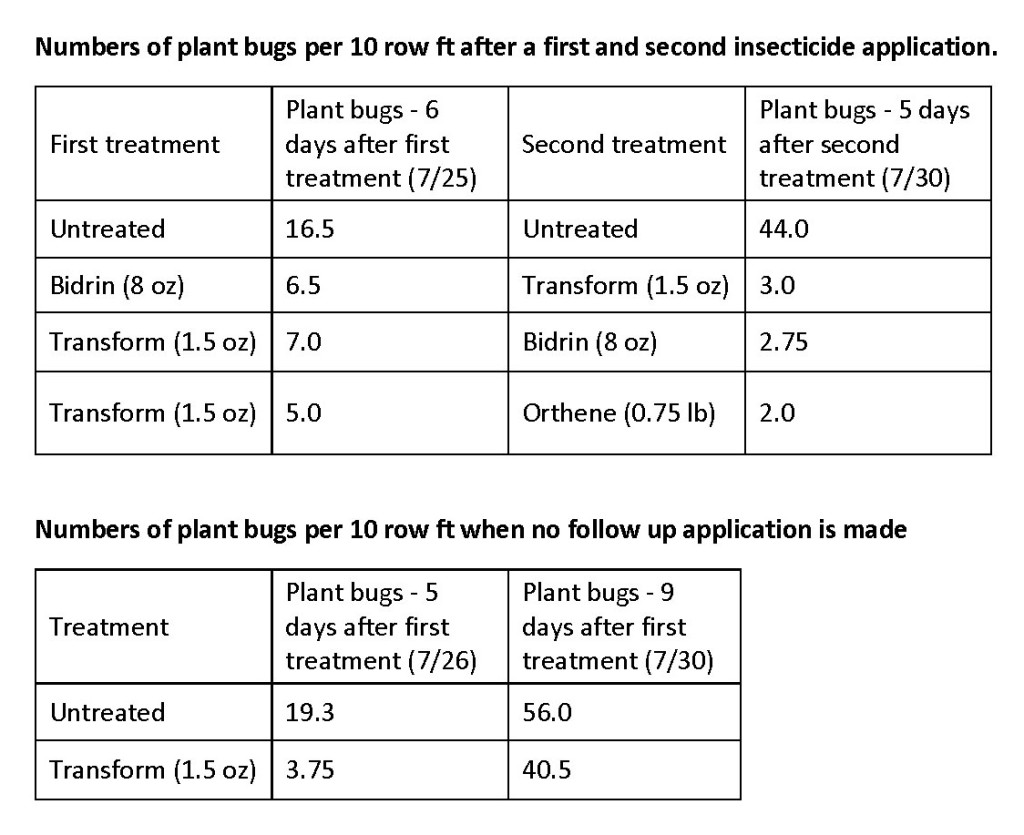I did a pretty through job in last week’s article about addressing insecticide treatment options in cotton. We’ve been collecting a lot of data this week in our trials, primarily targeting plant bugs, and I’ve seen nothing to change my opinions. The top performers list include Acephate/Orthene, Transform and Bidrin in tests with many tarnished plant bug nymphs. Various mixes of these products with each other or with a pyrethroid insecticide are also performing well. When you start with the top performing insecticides, it is often the timing and interval of applications that makes the biggest difference in insect control.
My take home point this week is to be prepared to spray. We’ve had a tough insect year in spots, but the next two weeks is typically the most critical window to scout and manage insect accordingly because most fields will have threshold levels of one of more pests. That does not mean spray without cause, but it does mean that we need to be on top of our game in controlling insects. Applications may be needed on a short (4-5 day) interval when pest pressure is high. Data indicates this is the best way to control plant bugs, and believe it or not, shorting up your spray interval can actually save an application in the long run. I don’t want to bomb you with data, but below are examples of tests that illustrate my points. The first table demonstrates that sequential applications can do remarkably well at breaking the cycle. It also shows that when starting with good insecticides, there really was not a huge difference in the control of tarnished plant bug populations. Further you can see from the second table not to expect effective residual control of plant bugs after 4-5 days, regardless of your insecticide selection.
Why so many plant bugs in our tests? This is what happens if you skip a spray when large numbers of adults are present. We did this intentionally the week before to get good numbers of immatures in our tests. Take heart that you are making progress even if it seems like you are not!


